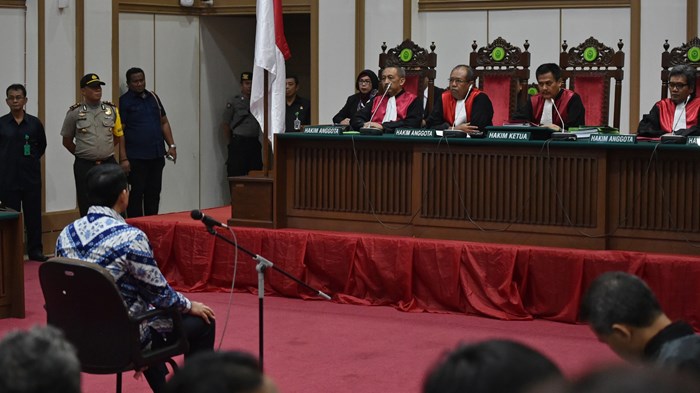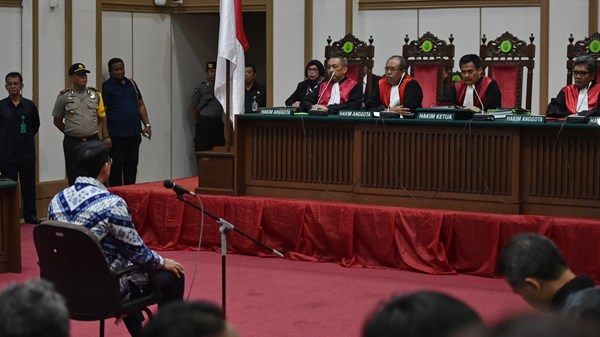

Indonesia’s top Christian politician has been convicted of blasphemy and sentenced to two years in prison.
Prosecutors had recommended a light suspended sentence for Jakarta governor Basuki Purnama (popularly known as Ahok) after blasphemy charges led to his failed bid for re-election last month. Instead of finishing his term running the capital city through October, Ahok will now have to appeal his conviction from jail.
The New York Times offers more details, as does Reuters.
“It’s a sad day, and it’s frightening,” Andreas Harsono, an Indonesia researcher for Human Rights Watch, told the Times. “If the governor of Indonesia’s largest and most complex city, and who is an ally of the Indonesian president, can be brought down and humiliated this way, what will happen to normal Indonesian citizens?”
“This verdict and the sentence imposed represent an outrageous miscarriage of justice,” stated Christian Solidarity Worldwide’s East Asia team leader, Benedict Rogers. “It also represents a further, and severe, erosion of Indonesia's values of religious pluralism as set out in the Pancasila, the state ideology.
“Indonesia’s ability to hold itself up as an example of a moderate, tolerant, Muslim-majority democracy is further threatened and is now very questionable.”
Being ethnically Chinese, Ahok is a double minority in the world’s most populous Muslim nation. About 1 percent of Indonesia’s 250 million people are ethnic Chinese, while less than 9 percent are Christian.
The verdict comes a day after Indonesia’s president banned a hardline Islamist group, Hizb ut-Tahrir Indonesia, because it threatened national unity with its protests against Ahok and other activities, reports AsiaNews.
Indonesia recently ranked as the most religious of 22 nations in the 2017 edition of Ipsos MORI’s Global Trends survey. The archipelago’s National Commission for Human Rights received nearly 100 reports of religious freedom violations last year, continuing a three-year trend.
One year ago, Indonesia’s Nahdlatul Ulama, the world’s biggest Muslim organization, defended Christians and denounced extremism. However, signs that Indonesia’s renowned pluralism may be imperiled have steadily increased in recent years, including a “national harmony” law that has closed 1,000 churches.

Support Our Work
Subscribe to CT for less than $4.25/month


















